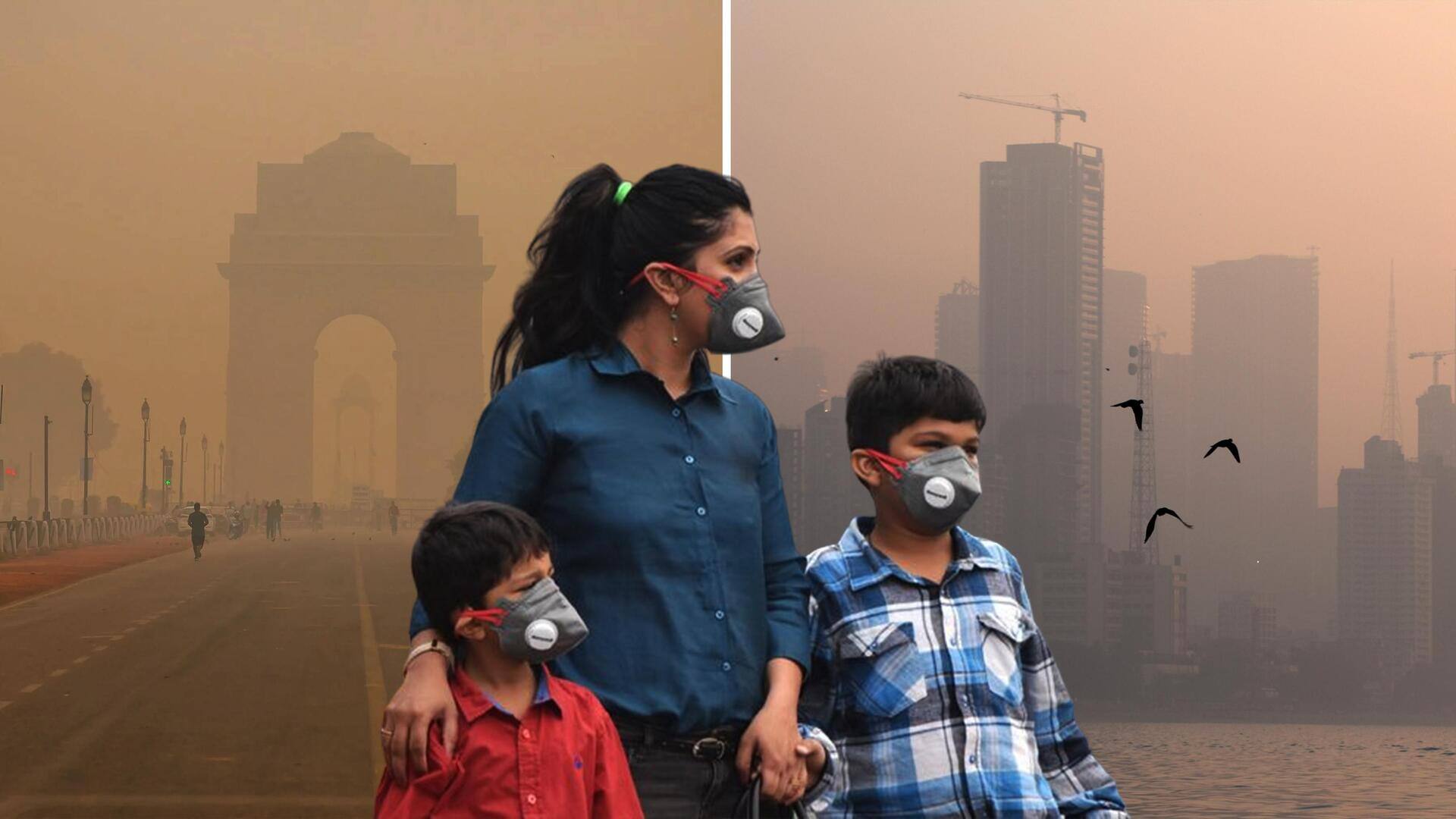
Delhi's air turns toxic, environment minister blames UP vehicles
What's the story
Delhi's air quality turned hazardous on Saturday, with an Air Quality Index (AQI) of 457 recorded at 10:00am, per Swiss-based IQAir.
Delhi's Environment Minister Gopal Rai blamed the influx of BS-3 petrol and BS-4 diesel vehicles from Uttar Pradesh for the deterioration.
He appealed to UP Chief Minister Yogi Adityanath to stop sending these vehicles to the national capital.
Meanwhile, hospitals reported a surge in respiratory illnesses, with doctors warning of long-term health problems due to the escalating pollution.
Context
Why does this story matter?
Delhi remained India's most polluted city in the last five years. Its residents are on track to lose 11.9 years of life expectancy owing to hazardous air, according to a new study.
Every winter, a combination of elements, including factory emissions, vehicle exhaust, and smoke from stubble burning, brings thick, toxic pollution to Delhi's doorstep.
Notably, the Delhi government has already banned the manufacture, sale, and storage of firecrackers, and the entry of diesel buses from outside states.
Statement
Banned BS-3, BS-4 vehicles from UP deteriorate Delhi AQI: Rai
During a late-night inspection at Anand Vihar bus terminus on Friday, Rai said BS-3 petrol and BS-4 diesel vehicles—which are banned in Delhi—enter from UP and contribute to the deterioration of the AQI, per Hindustan Times.
"I appeal to Yogiji to not send these vehicles to Delhi," he said.
He also accused the bus depot manager and traffic staff of being lenient and allowing these vehicles into Delhi.
Notably, Anand Vihar's AQI at night touched 999 making it extremely hazardous.
What Next?
Hospitals witness surge in respiratory cases
Amid the worsening air quality, hospitals across Delhi-NCR report a concerning increase in patients seeking treatment for respiratory problems, according to News18.
Reportedly, there has been a rise in patients with breathing difficulties and eye problems over the past two weeks.
Infants and children are the most vulnerable group, as their developing lungs are especially susceptible to pollutants.
Dr. Pradeep Bajad, a consultant in pulmonary medicine at Amrita Hospital in Faridabad, said respiratory illnesses increased four times the usual rate.
Facts
Strict safety measures advised to protect health
As such, doctors emphasized the importance of strict safety measures in order to safeguard oneself.
They stressed the need for wearing high-quality masks, staying indoors during peak pollution hours, and avoiding outdoor exercise to reduce exposure to harmful pollutants.
Coughing and increased sputum production are the most common respiratory symptoms among patients coming to hospitals. These people exhibit asthma-like symptoms.
AQI
Schools shut, curbs imposed on construction
On Friday, the average AQI in Delhi touched 468—a stage that triggers the activation of emergency measures.
Delhi's Lieutenant Governor, VK Saxena, held an emergency meeting with Chief Minister Arvind Kejriwal to assess the situation.
Due to increasing pollution levels, Kejriwal announced on Thursday that all government and private elementary schools in the city will be closed on Friday and Saturday.
Non-essential construction work and the use of BS-4 diesel and BS-3 petrol vehicles are also prohibited in the NCR.